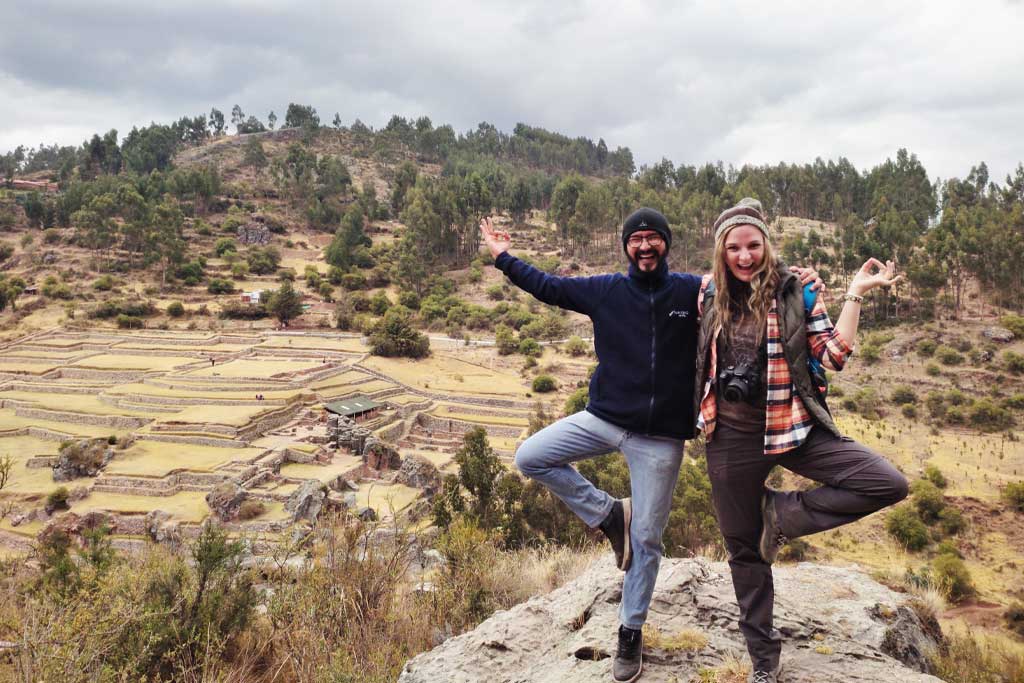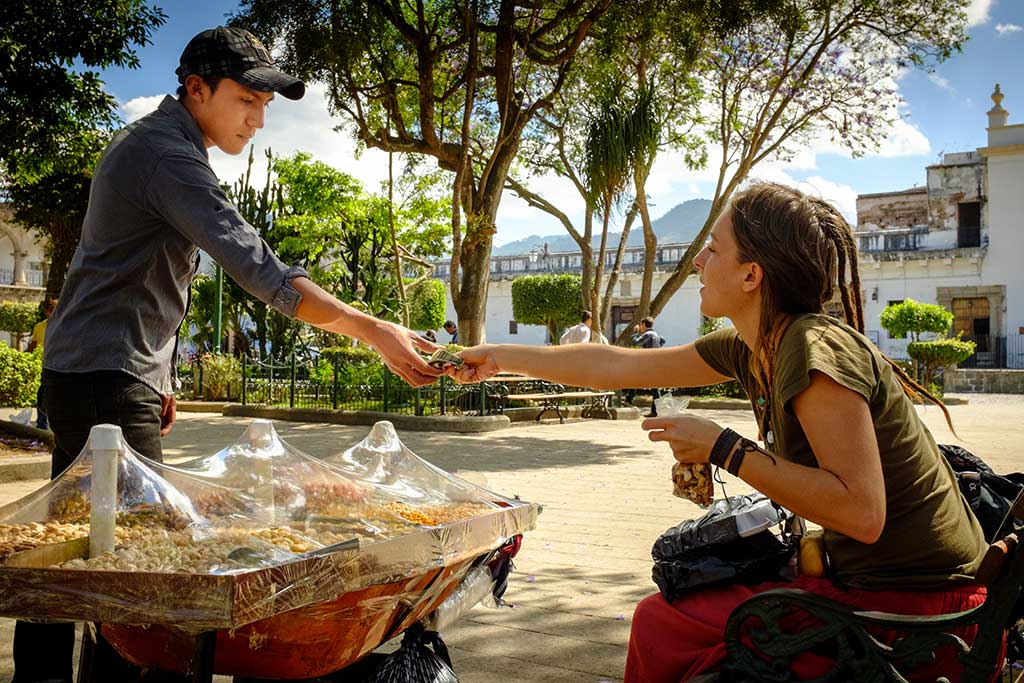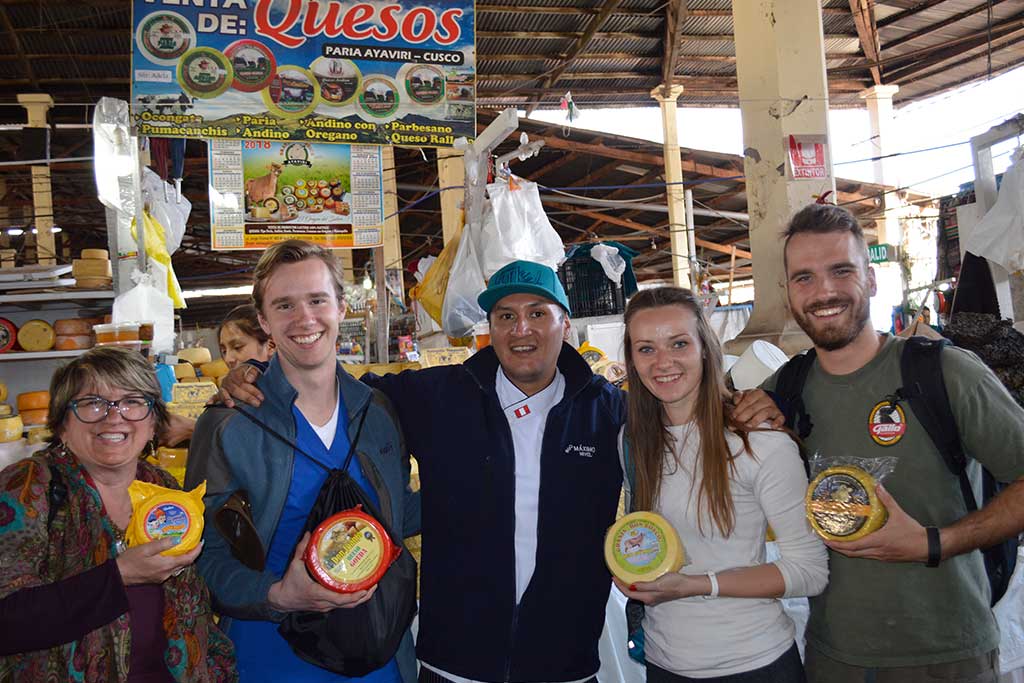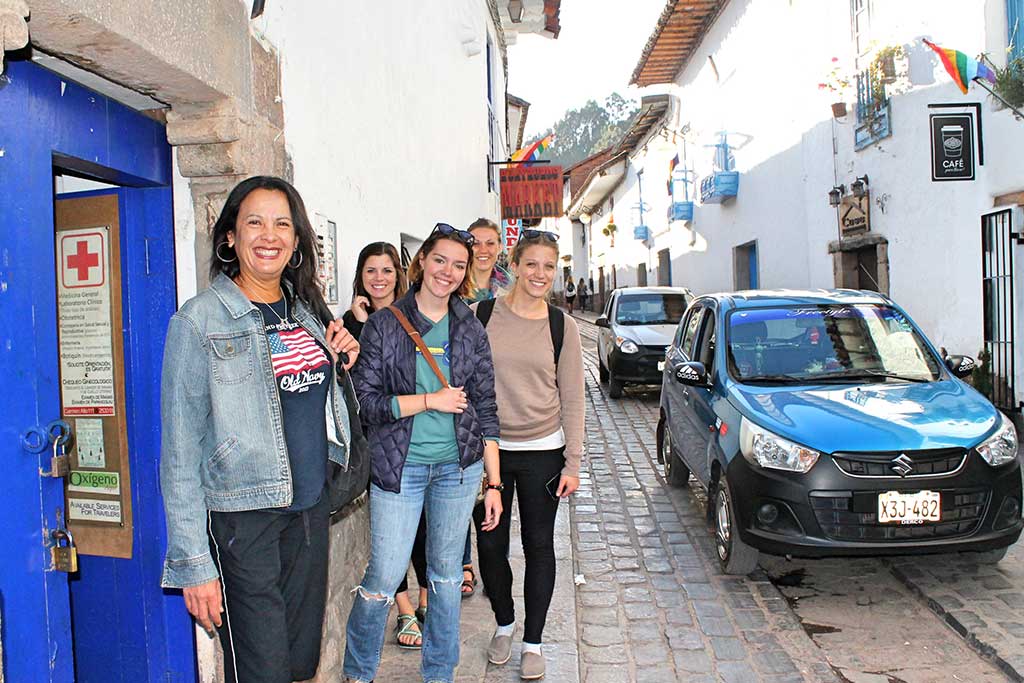Travel can look like a million different things. Are you a thrill seeker keen to go scuba diving off the coast of Peru or zip lining through the Costa Rican jungle? Do you visit Guatemala every summer to brush up on your Spanish? Or would you prefer to lounge seaside somewhere in the Caribbean daiquiri in hand?
No matter what type of traveler you are, stepping outside your daily routine leaves an impact. In part, this impact will be personal. Hopefully, seeing more of the world will affect the way you perceive your place in it. Expanding your worldview can open you up to new experiences, friendships, ways of thinking, and even skills.
However, eager travelers often overlook the side effects of travel—those that they may be having on their vacation destinations. There is so much emphasis on optimizing the traveler’s experience that the impact of tourism on local communities is overshadowed. And though some countries rely heavily on tourism to fuel their economies, what are the costs that we aren’t addressing?
Being conscious of the consequences of tourism, both good and bad, is the best way to approach cross-cultural interactions respectfully. Sustainable (or responsible) tourism is the body of thought that looks at travel holistically, not just the snippets you get from the cover of a Travel + Leisure magazine.
Tourism is not evil, but as with any industry, its effects ripple through our global society. A responsible tourist, therefore, takes time to consider the socio-cultural and environmental impact of their travels in addition to the obvious economic exchanges taking place.

Traveling sustainably is all about looking beyond yourself. Consider a cosmopolitan approach. As global citizens, we should recognize the role tourism plays in host communities. This doesn’t mean you shouldn’t travel internationally; rather, it’s a challenge to become more conscious of your global footprint.
Mindful Travel
Being more mindful could change your future travel plans. But as with all things in life, sustainable travel is a matter of balance. It’s probably unrealistic to vow to never take a plane again due to the harmful emissions produced by aircraft. It’s also unlikely that you can prevent cultural insensitivity on a global scale.
However, mindfulness is the purposeful parent of balance. Next time you’re booking a trip to Cusco, take a moment to consider the greater impact of your vacation. What do you want to give and what do you want to gain? If your instinct is to look for maximum comfort at the lowest rates, you’re definitely not alone.
Bargain hunting is a very valid form of travel planning, but let’s dig a little deeper. What else should we throw into the mix? Planet. People. Profits. What environmental consequences will your trip have? How will your travels affect local communities? And whose pocket will your money end up in?

Sometimes, these questions are beyond our grasp. International travel is part of a complex, interdependent system that no one tourist can control. And for many, all of this mumbo jumbo about sustainability probably just seems like empty words. So how can we transform the abstract into real steps that tourists can take?
Think Responsibly
First of all, feeling guilty is a waste of time. There’s no use in assuming you’re the sole reason that natural resources have been depleted and local businesses have gone under all over the world. It’s much more constructive to make small changes in the way you travel. The ripple effect works both ways you know!
The biggest and easiest aspect of respecting other people’s cultures is to simply try. We call locals “locals” because they live there. So, whether you’re buying fresh fruit at the market or launching an impromptu photo shoot, remember that the world actually isn’t your playground. It’s a shared space.
So, when you’re on foreign land, it’s especially important to be as kind and respectful as possible. Try to learn a little about the culture, a bit of the language too if you have time. Always be polite and understanding of cultural differences. And when possible, see if you can support small locally run businesses.

Small gestures such as these will hopefully result in a travel experience that is mutually rewarding. The elephant in the room, however, is environmental sustainability. Unfortunately, if you’re traveling internationally, the only realistic mode of transportation is bound to be an airplane.
If other types of transit aren’t an option for you, focus on what you can control. Try to spend time in areas that don’t get quite as much tourist traffic. Conserve water and energy as you can, and particularly in countries that lack reliable recycling practices, try to avoid single-use plastic products. Every bit counts.
Types of Trips to Take
Though slow tourism may not be possible for everybody, staying in one place for a longer period of time is often the best way to engage authentically with the local community. There are also so many ways to support local economies as you travel that will likely lead to richer travel experiences for you too!
An easy way to support local professionals and get in tune with the culture is to enroll in language courses. Learning the language will also help you get involved in the community and make meaningful connections. If you’re staying long enough, you could even return the favor by teaching English as well!

But if you’re not really the classroom type, volunteering is another great way to travel sustainably. At Maximo Nivel we match mindful travelers with volunteer placements across Latin America. You could serve in any field you’re passionate about from environmental conservation to special education.
And in the end, it’s not so much what you do, but how you do it. Getting an internship or job abroad doesn’t bar you from traveling responsibly, nor does only staying somewhere for a week. What’s important is that you be conscious of your footprint, try to live locally and be open to learning from your experience.
